Publié le
Dernière mise à jour de cette page le
Inter-Press Service, the alternate Third World-focussed news agency, has these stories related to the WSIS. Given its alternative perspective, it reminds us of some diverse perspectives which the first-to-break-the-news Western media often overlooks… or simply prefers not to highlight. One interesting piece is href=“http://www.ipsnews.net/news.asp?idnews=30995”>Media Enemies to Share UN Spotlight by Marty Logan. Inter-Press Service, the alternate Third World-focussed news agency, has these stories related to the WSIS. Given its alternative perspective, it reminds us of some diverse perspectives which the first-to-break-the-news Western media often overlooks… or simply prefers not to highlight. One interesting piece is href=“http://www.ipsnews.net/news.asp?idnews=30995”>Media Enemies to Share UN Spotlight by Marty Logan. This article says “at least two enemies of media freedom” will “share the spotlight” at the WSIS this week. Nepal’s King Gyanendra will be in Tunis at the invitation of President Zine al-Abidine Ben Ali. In Kathmandu, the king has tightened restricts on journalists since his takeover of the government, February 1, 2005.
Tunisia has been criticised as the venue for the WSIS, as “Ben Ali’s government has jailed journalists critical of its policies and actively censors the internet”. IPS contrasts the WSIS Declaration of Principles — “We commitment to the principles of freedom of the press and freedom of information, as well as those of the independence, pluralism and diversity of media, which are essential to the Information Society” — with the deeds of worthies at the helm in countries like Nepal and Tunisia. And, of course, media censorship isn’t just a Third World problem. If we take the commercial pressures on the Press, and concepts like “embedded journalism” into account, there would be a lot more scope for debate.
Another IPS story by Stefania Milan warns of Divisions Open Up Ahead of Summit. Filed from Florence (Italy), it notes that “last-minute negotiations are seeking to narrow the wide divisions that have emerged on governance of the Internet and the ‘digital divide’ between nations.”
We’re reminded that “reform of internet governance is the most divisive issue on the agenda. The web is currently managed by the Internet Corporation for Assigned Names and Numbers (ICANN), a non-profit organisation based in California in the United States. ICANN has an international advisory board, but the United States has veto power, giving it effective control over the global domain name system.”
Says IPS: “Several countries are calling for a more democratic inter-governmental organisation to rule the Internet. Ten proposals for reform are under discussion…. Other unresolved issues include the use of free and open software for development. Here Brazil is strongly opposed to the United States.”
From the Caribbean, another perspective from Peter Richards (of IPS) says Journalists Fear a “Looming Storm. It explains that journos there say they will closely monitor the position of the region’s governments at the WSIS.
With a large number of participants expected — the figure ranges from 10,000 to 11,000 and 17,000 — the Association of Caribbean Media Workers (ACM), which met in Barbados recently, is concerned that regional governments do not use the forum as a means of developing strategies to muzzle the internet and the media, says IPS.
“We know what Caribbean governments mean when they talk internet governance. They mean censorship, plain and simple,” said Wesley Gibbings, the outgoing president of the ACM. “We have to ensure we do not become unwitting allies in that effort by paying closer attention to what happens in Tunisia …,” IPS reports from a little-reported on part of the planet.
IPS reports that the ACM also issued a report titled “The Looming Storm”, which describes self-censorship and pressure from government officials as two of the most serious problems facing journalists in the region.
“Newscasts generally have become government public relations reporting as some journalists have found themselves having to take sides to secure their jobs,” the group is quoted saying.
As mentioned earlier in this blog, another report by Haider Rizvi from the United Nations is titled U.S. Fights to Remain the Ultimate Webmaster. And this one from Bangkok by Marwaan Macan-Markar is a demand which says ‘Information Society Must Block Paedophiles’.
Looking forward to more insightful inputs from news alternatives like IPS.


